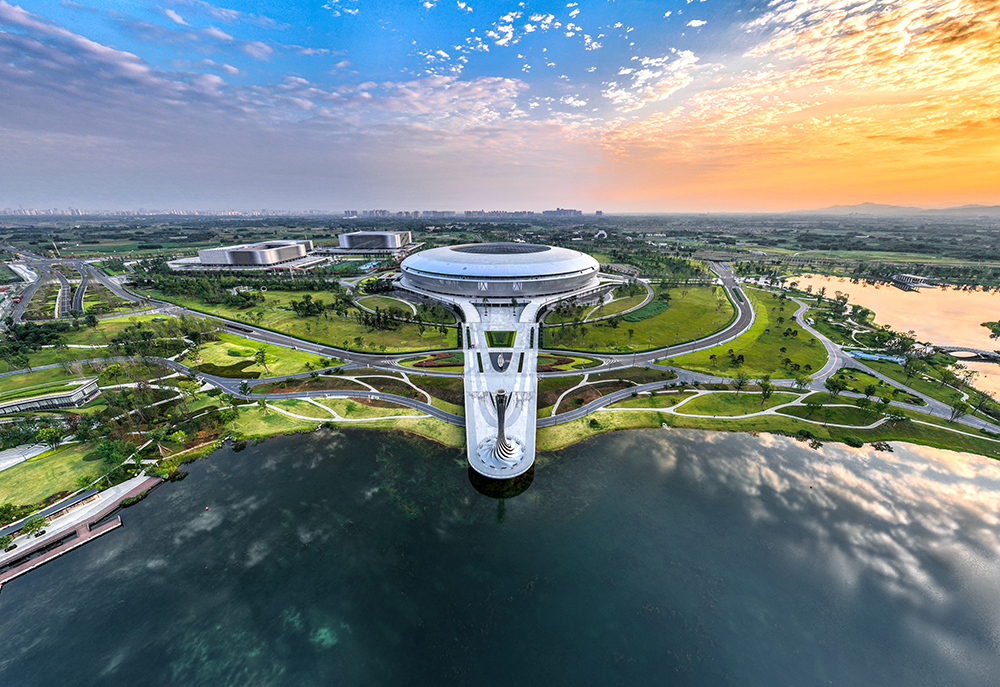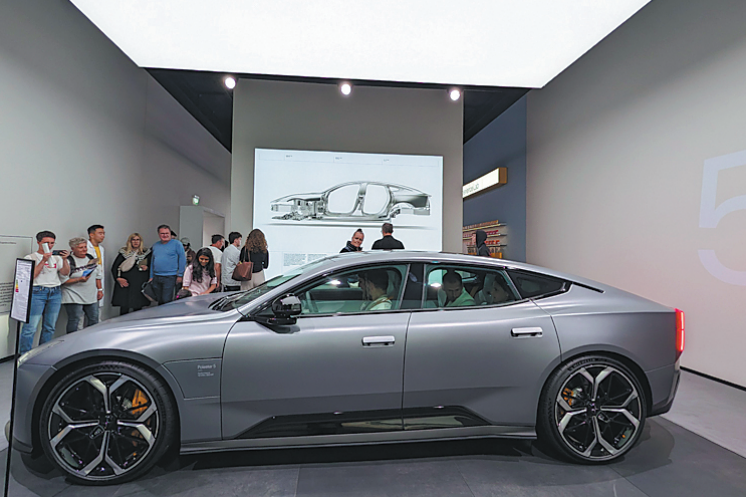Chengdu prepares to host FISU Games


The 31st FISU Summer World University Games will be held in Chengdu from July 28 to Aug 8. The event is to bring together student-athletes from across the globe and allow them to showcase their skills, forge friendships and realize their dreams.
Chengdu, Sichuan province, is the third city on the Chinese mainland to host the biennial FISU Games, following Beijing in 2001 and Shenzhen, Guangdong province, in 2011. It is also the first time for China's western region to host a comprehensive international sports event.
The Chengdu FISU Games will allow young athletes from around the world to showcase their abilities and enhance their skills. Athletes will be competing for 269 gold medals across 18 sports, which include archery, gymnastics, athletics, badminton, basketball, diving and fencing.
The Chengdu FISU Games has been postponed twice due to COVID-19. In order to mitigate the effect on student-athletes, the International University Sports Federation broadened the eligibility requirements. It allows current university students aged between 18 and 27, as well as graduates from the academic years of 2020-22, to participate.
Since winning the bid to host the FISU Games at the end of 2018, Chengdu has made comprehensive preparations in line with the principles of staging a "simple, safe and splendid" event. Chengdu is striving to deliver an international sporting spectacle with distinct Chinese characteristics, embodying the spirit of the era and highlighting the charm of the youth.
Integration
Hosting events in a green and low-carbon manner has become a global trend, and China has been a crucial driving force behind it. The Chengdu FISU Games is determined to be a pioneering event by pursuing carbon neutrality, organizers said.
To achieve carbon neutrality, the Chengdu FISU Games is pursuing environmental friendliness and carbon reduction throughout the entire process, encompassing the pre-event and post-event stages. In April 2022, the event's organizing committee released an action plan focused on green and low-carbon hosting, outlining the roadmap of reducing carbon emissions at their source, conducting process assessments and achieving carbon neutrality.
Out of the 49 venues of the Chengdu FISU Games, only 13 were newly constructed and each meets the two-star green building standards. The other 36 venues are repurposed and upgraded buildings. Throughout the process, green and energy-saving measures were promoted, along with prioritizing the use of environmentally friendly building materials. All venues have been designed to ensure long-term use after the games.
The construction of the FISU Games Village, located in Chengdu University, adheres to national green building standards. It has incorporated post-games use needs since the planning stage. The university's campus and development plan served as the basis for the construction of 22 new buildings. They include the services center, medical center, international education and exchange center and training building. These buildings, capable of accommodating 11,000 people, will be handed over to Chengdu University for permanent use after the games.
The Chengdu FISU Games is to harness Sichuan's abundant renewable energy resources. It is to achieve 100 percent use of "green power" for regular electricity consumption during the opening and closing ceremonies, the main media center, the FISU Games Village and the competition venues during the games. Advanced energy technologies and new energy facilities such as cadmium telluride solar panels, ground source heat pumps, as well as charging and swapping stations, are to be utilized to reduce carbon emissions.
A fleet of new buses will be temporarily used during the Chengdu FISU Games, which greatly reduces vehicle procurement expenses. A total of 1,340 new energy buses and more than 1,000 new energy cars are dedicated to providing transportation services for athletes, technical officials and media personnel during the event.
An official from the Chengdu ecology and environment bureau said: "Of the transportation between the FISU Games Village and venues in the central urban area, 90 percent is carried out by new energy vehicles. Additionally, 100 percent of the transportation within the FISU Games Village is operated using new energy shuttle buses."
Innovation
To achieve the goal of hosting a smart event, the Chengdu FISU Games has integrated more than 170 technological products including venue construction, event support and digital viewing. These products have been implemented across more than 30 venues, ensuring seamless organization, participation and viewing experiences.
In terms of event support, the "Rongbao" robot, inspired by the Chengdu FISU Games mascot, is the world's first service robot with emergency functions. It can deliver emergency kits, defibrillators and other medical emergency tools at venues. The robot can also provide intelligent services, including providing directions, broadcasting information, translating languages, assisting remote communication and answering questions.
The Chengdu FISU Games has introduced a variety of intelligent robots to assist in athletic training and daily life services. These include a table tennis training robot, a coffee robot and a humanoid robot capable of dancing and walking at pace.
Building upon its accomplishments as a smart city, Chengdu has leveraged cutting-edge technologies like 5G, 8K, AI, the internet of things, cloud computing and big data to create a sports event information system, a smart venue management system and a FISU Games service system. These technologies are to be applied to assisting venue management, enhance the spectator experience and assist media communications.
Smart streetlights in the core areas of the FISU Games venues are equipped with a range of intelligent devices. They can provide functions such as Wi-Fi connection, smart lighting, environmental monitoring, car charging, information release and one-click police calling.
The Chengdu FISU Games is the first such large-scale sports event in China to be fully produced in 4K. During the games, technologies such as 8K ultrahigh-definition and 5G live broadcasting are to be used to enhance the broadcast quality and on-site navigation.
























